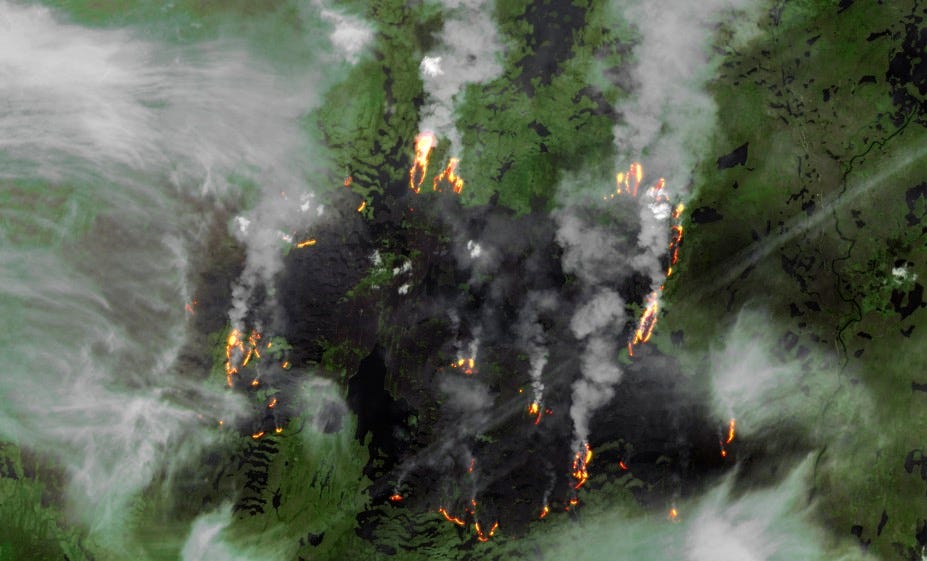Green Lights July 7: Top stories this week
Don't miss a single story: The best from Callaway Climate Insights
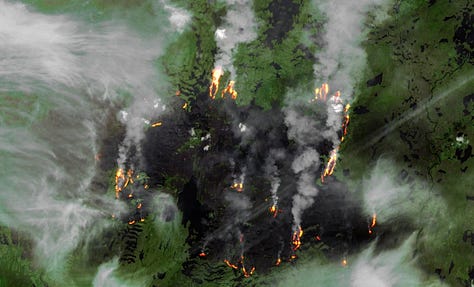



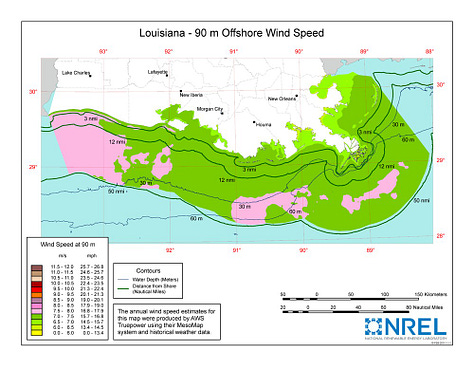
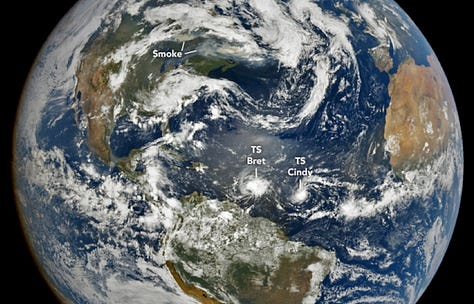
. . . . Welcome to Green Lights, our weekly roundup of the best of Callaway Climate Insights. This week, we’re still shaking our heads about the global temp records. Monday had the highest average global temperature on Earth ever recorded by humans, breaking a record set in 2016. But Monday’s record was broken on Tuesday, and Wednesday matched or exceeded Tuesday’s. Climate scientists say it’s not a record to celebrate and it won’t be a record for long, with northern hemisphere summer still mostly ahead and El Niño developing. Sunscreen? Check. Smoke/Covid mask? Check. Umbrella? Check. Be careful out there. Here are the highlights in a simple and convenient format that makes it easy for our readers. It’s also easy to subscribe.
. . . . After more than a year of keeping a low profile around all things ESG because of political backlash, Wall Street is quietly shifting gears for another run at climate finance, perhaps spurred by investor demand tied to record heat and wildfire smoke this summer, writes David Callaway. It’s good to see Wall Street paying attention again, but as global heat records fall and wildfires flare, it won’t stop what we’re seeing this summer.
. . . . With all the controversy around the reporting of Scope 3 emissions, or the pollution from a company’s supply chain, little has been said about Scope 4 emissions, and there may be a reason for that, writes Mark Hulbert. The vagueness around Scope 4, which is supposed to be the amount of “avoided emissions” from using a company’s products versus those of another company, appears to be a marketer’s dream.
. . . . Monday Tuesday Wednesday was the hottest day ever on Earth recorded by humans. Climate scientists say it’s not a record to celebrate and it won’t be a record for long, with northern hemisphere summer still mostly ahead and El Niño developing.
. . . . The U.S. has been super-slow to the offshore wind power game, with a slew of projects on the East Coast being held up by federal, state and local reviews, leading, in part, to major developers getting cold feet. But that may not be the case in Louisiana, where proposed projects are in state waters and the regulatory environment is much friendlier.
. . . . Pizza pollution? Yes, the struggle is real, writes Matthew Diebel. New York has proposed new rules that would require pie makers cooking with coal or wood to cut emissions by up to 75%. Any way you slice it, it’s a tough call.
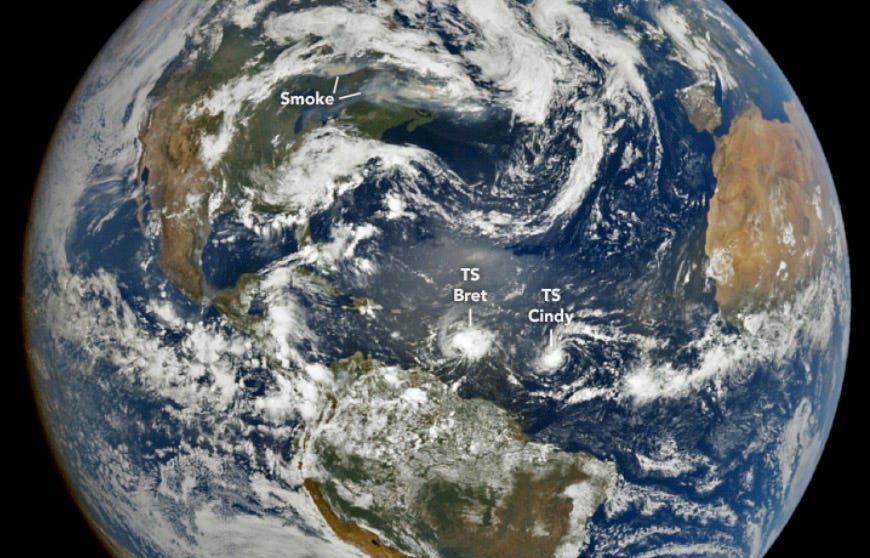
. . . . Accurate weather forecasts save lives: This working paper from the National Bureau of Economic Research provides the first revealed preference estimates of the benefits of routine weather forecasts. The paper, titled Fatal Errors: The Mortality Value of Accurate Weather Forecasts, shows the benefits from people using advance information to reduce mortality from heat and cold.
More greenery. . . .
From Rolling Stone (of course): The Arctic Is Farting ‘Ancient’ Methane and It’s Scary
Follow the money: Carbon’s social cost and climate wealth borrowing by countries since 1950
Hint, it’s air conditioning: What Climate Change Has to do With the Looming UPS Union Strike
‘Nowhere is safe’: Summer travel holds nasty surprises as climate change alters beloved destinations
Really? No, really?!: Now they think climate change is speeding up the rate of blindness
Now, if you haven’t already, please go get yourself a cool drink and subscribe to Callaway Climate Insights. You deserve it.



